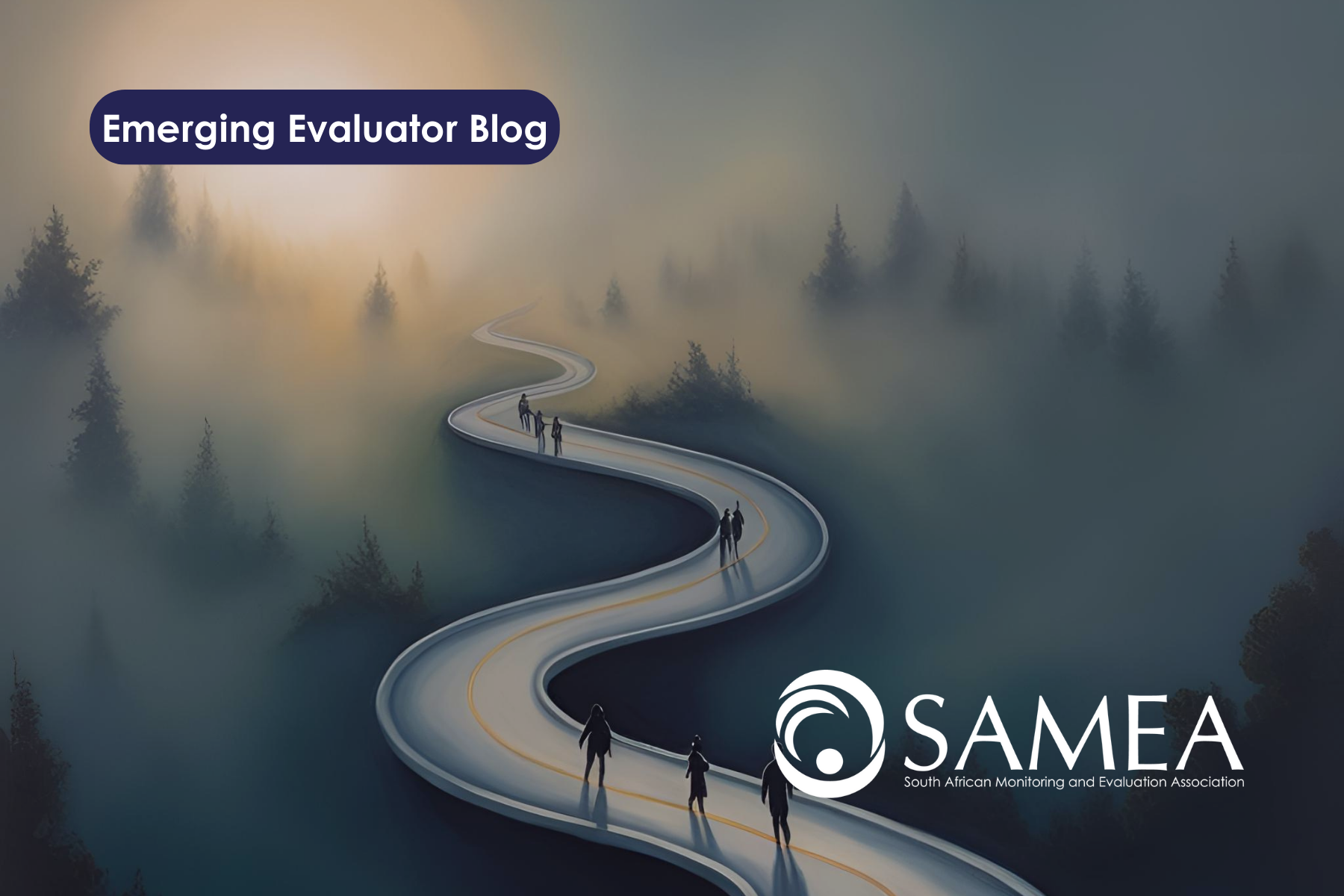Unlearning and Relearning: The Made in Africa Evaluation Movement

Blog by Nelisiwe Maseko – Emerging Evaluator at SAMEA (2024)
The Made in Africa Evaluation (MAE) sessions at SAMEA’s 9th Biennial Conference, held on 9 October 2024, were not just another set of discussions about evaluation methods—they were a call for transformation.
To truly understand MAE, we must first unlearn evaluation practices shaped by Western ideologies and embrace an African-rooted paradigm. This blog explores the key discussions from these sessions, illustrating how MAE is reshaping evaluation to better fit African realities.
Session Highlights: Key Themes from the Conference
At the heart of MAE is a commitment to equity, inclusivity, and the recognition of Indigenous Knowledge Systems (IKS) as valuable sources of evidence.
Professor Bagele Chilisa’s presentation focused on the systematic review of African-rooted evaluation frameworks, particularly within the agro-food system—a fitting example given agriculture’s centrality to many African communities. The intersection of agriculture and IKS demonstrated how traditional knowledge can lead to more relevant and sustainable evaluation methods.
A recurring theme was the rejection of one-size-fits-all evaluation models. Africa’s diversity demands evaluation approaches that reflect different contexts, cultures, and lived experiences. Particularly noteworthy was the discussion around data collection methods:
-
Storytelling
-
Oral traditions
-
Proverbs
All of which are often undervalued in Western evaluation frameworks but were celebrated here as valid and powerful tools that reflect community realities.
Relevance to Emerging Evaluators: A New Path Forward
For Emerging Evaluators (EEs), MAE offers both opportunities and challenges.
On the one hand, EEs can play a pivotal role by bringing fresh perspectives and innovative approaches to evaluation. Andiswa Neku’s presentation highlighted how EEs can leverage growing donor interest in MAE to secure funding and drive change.
However, challenges persist. Many institutions still hesitate to embrace MAE frameworks fully. Current co-creation processes are crucial for bridging the gap between research and practice. Ms Neku stressed the importance of advocacy and mentorship in helping EEs navigate these pressures and uphold MAE principles in their work.
Lessons Learned: The Importance of Cultural Sensitivity
Tshidi Moilwa’s session on data collection emphasised that cultural sensitivity must be a cornerstone of evaluation practice.
Key insights included:
-
Language matters: Using indigenous languages builds trust and yields richer, more accurate data.
-
Gender sensitivity is essential: Women, often key community informants, must be actively included and valued in evaluation processes.
MAE demands evaluators to engage deeply and respectfully with the communities they evaluate.
Technology and Innovation: A Critical Gap in MAE
According to Jerusha Govender’s presentation, a critical gap within the MAE movement is the integration of technology.
Current tech tools often reflect Western methodologies and do not align with African cultural and ethical considerations.
There is an urgent need for tech-enabled solutions rooted in African indigenous practices. This represents a major opportunity for Emerging Evaluators to:
-
Co-create technology solutions with communities
-
Bridge tradition and innovation
-
Advance MAE in a way that honours African values
Conclusion: A Call to Action for Emerging Evaluators
The Made in Africa Evaluation sessions were a powerful reminder that evaluation in Africa must be rooted in African contexts.
As Emerging Evaluators, we have a responsibility to:
-
Challenge the status quo
-
Unlearn Western-centric practices
-
Reimagine and rebuild evaluation frameworks based on African realities
The future of MAE depends on a new generation of evaluators who are willing to:
-
Advocate for change
-
Embrace cultural sensitivity
-
Innovate through African-centred technology
Most Recent Read
Discover more topics
